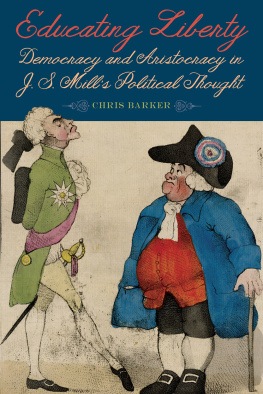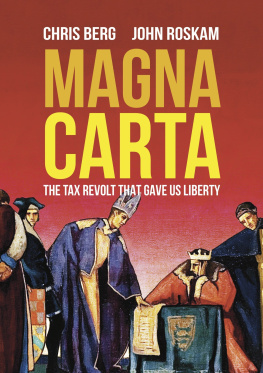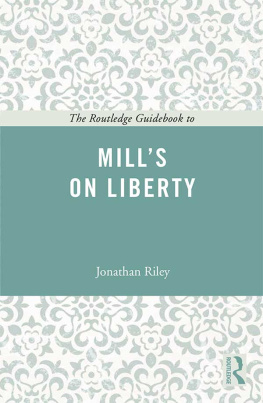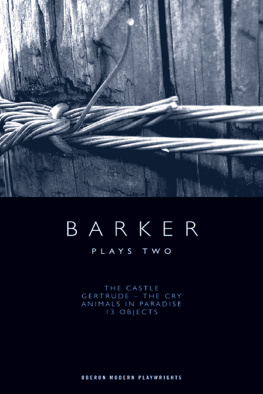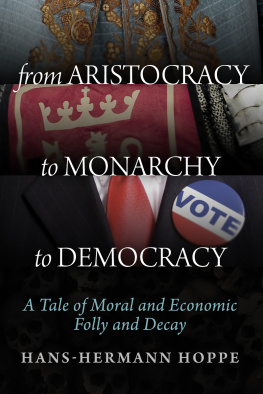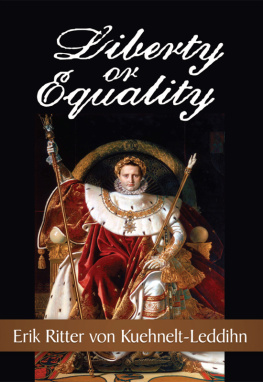Acknowledgments
Anyone writing a personal preface to a scholarly book should probably bear in mind Nietzsches warning about arriving at that point in every philosophy at which the conviction of the philosopher appears on the scene.
Below, I offer an overview of Millian liberalism that places education at the center of his social and political science. It represents my attempt to stand within the contemporary distinction between continental and analytical philosophy, paying respect to both, and to acknowledge the tension between progressivism and conservatism by providing something more comprehensive than both. This overview may not represent a philosophical synthesis of the principles of modern life, but all the elements of a full synthesis are there: individualistic emphasis on interior culture; attention to patterns of life in the family and in the workplace; and attention to the formation of opinions in science, politics, and religion. At the very least, this is an improved and transformed liberalism, rather than the non-answer of a liberalism of the intellect that is left to guide itself ( intellectus sibi permissus ).
I would like to thank the excellent teachers of the University of Toronto for their instruction in social, political, and classical thought. I would also like to thank the faculty of the Claremont Colleges and of Claremont Graduate University for their seriousness, generosity, and vigor. Since this is a book about education, I would be remiss if I did not suggest that these institutions offer a liberal education. I would also like to thank the colleagues and students with whom I have worked at Harvard University, Boston College, Ohio University, and Southwestern College. I have been lucky to share the halls of academe with you.
A National Endowment for the Humanities institute and seminar at, respectively, Duke University and the University of Virginia greatly aided my understanding of classical liberalism and Tocquevilles theory of democracy. I owe a debt of gratitude to the staff of the Newberry Library in Chicago, the Asian & African Studies reading room at the British Library, and the Somerville College library at Oxford University for their aid. Access to the stacks at the University of Toronto, Wichita State University, and Brock University while I was editing the manuscript was very welcome.
This book is derived in part from an article published in History of European Ideas (2015), copyright Taylor & Francis, available online: https://www.tandfonline.com/doi/full/10.1080/01916599.2015.1077149. I would also like to thank SAGE Publications for permission to reprint portions of an article first published in Law, Culture and the Humanities .
I would also like to extend special thanks to those who were instrumental in helping to bring this book to publication at the University of Rochester Press: Ryan Peterson (now with Penn State University Press), Julia Cook, Tracey Engel, and Sonia Kane; Barbara Curialle; the Presss anonymous reviewers; and the Presss editorial board.
I would like to thank the community of Mill scholars for their truly excellent work on Mill, not least of which is the complete works, edited by John Robson. I have relied heavily on the volumes themselves, on the exemplary introductory essays, and on the impressive editorial labors that have made Mills works widely accessible to scholars across the world.
Finally, I wish to thank my family.
Introduction
An Educated Life
This book offers a new interpretation of Mills social and political thought. As I argue below, Mill wants above all to educate society. But through the experience of reading and debating with less moderate authors, he learns that education is a power, and that educative power cannot be permitted to direct society at the expense of individual agency. Since it is the case that the power of traditional authority and the unspeakable power of education are so great, education must be done without principling students and without requiring them to think by deputy, or the power of education becomes the power of custom and tradition. Educating without imposing first principles is the best way to increase aggregate mental power. This insight is at the heart of Mills theory of civic education.
Across all his writings, and in part because of the special circumstances of his own indoctrination as a Benthamic Utilitarian, Mill limits educative power only to as much power as is consistent with individuality of power and development, which in turn is justified as a necessary part and condition of civilization, instruction, education, [and] culture.
According to Mill, every society needs something permanent, and not to be called into question; something which, by general agreement, has a right to be where it is. This is the constitutional ethos, or piety, of a society. Challenging custom may seem like an impractical and quixotic task, but change as Mill understands it is already within reach. The remedy for many political errors is to change majority opinion, not to seize power through minorities and exert influence and make decisions in that way. One changes majorities by educating them, and one educates majorities by changing their experience of power, both as they wield it and as it is exerted on them.
The Millian subject would greatly benefit from, but does not have to study, logic and the social sciences. With the more modest expectations about the changes in mental power that he anticipates, Mill proposes that the heavy lifting is already being done by two changes in his (and our) time. The first and greatest change that Mill anticipates is the equality of men and women, and especially the lifting of legal disabilities on married women, followed in second place by the equality of economic actors (owners, workers, managers) across classes and the end of inherited social classes of workers and owners/managers. Both of these changes will do most of the work in transforming society in the direction of mental independence. These changes in the power of thinking are discussed in chapters 1 and 2. In chapters 3, 4, and 5, other crucial aspects of modern equality are analyzed from the vantage of their educative effects: the important contributions made to political judgment by social scientists, and the danger posed to educative liberty by thinking of social scientists as a cadre able to predict and direct social progress; the contribution made by politicians to the refinement of public opinion, and the danger of elitism; and the importance of religion for social unity, and the danger of new types of theistic conformism.


